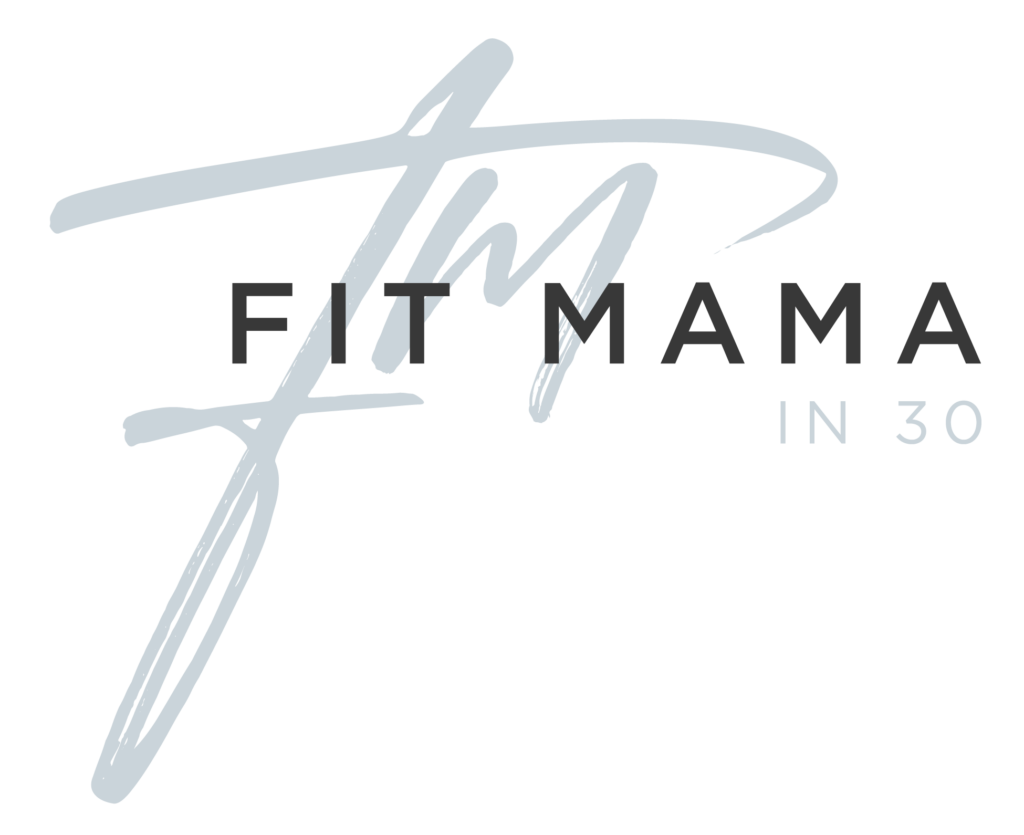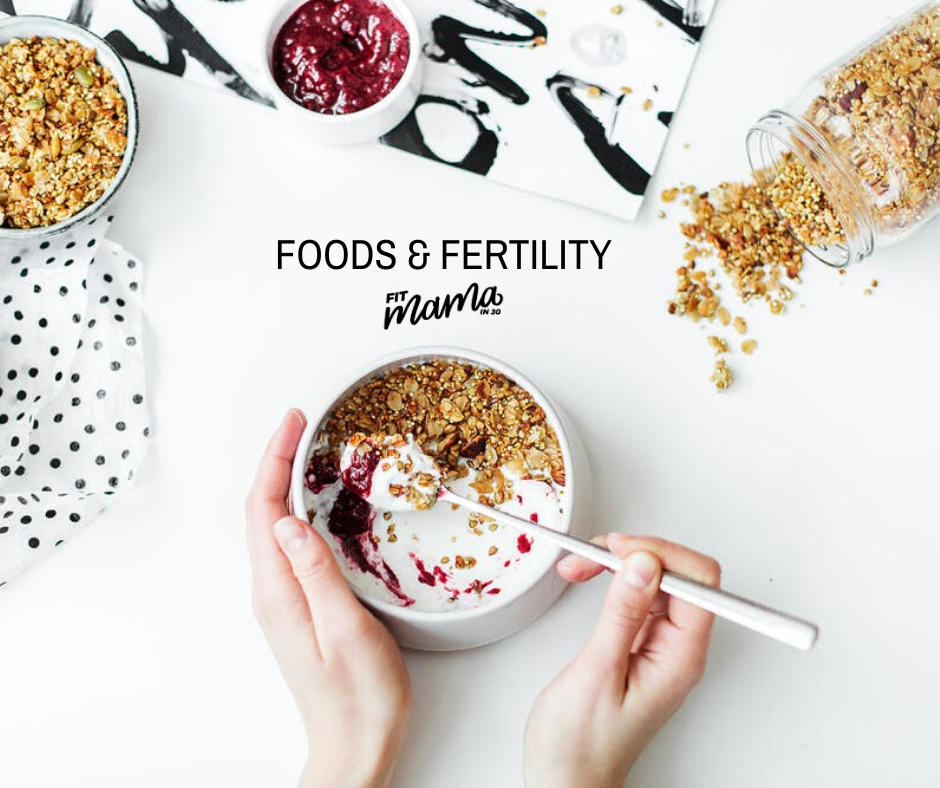Have you heard of preconception nutrition? While eating specific foods can’t guarantee pregnancy, some may help increase your chances of conception based off scientific research. Check out some important foods, vitamins, and minerals to consider including into your diet if you are planning to become pregnant.
- Folic Acid/Folate. This B vitamin is one of the most important nutrients you can take before (and during) your pregnancy. The American College of Obstetricians and Gynecologists (ACOG) recommend child-bearing age women to take 400 micrograms (mcg) of folic acid at least 1-3- months prior to pregnancy. Not only is folic acid crucial for forming healthy cells, it can also help prevent birth defects such as spina bifida and anencephaly. It can be difficult to find through whole foods so you should talk with your physician about taking a prenatal vitamin that has 400 to 600 mcg of folic acid. You can also find it in foods such as:
- Leafy green vegetables. Spinach, broccoli, bok choy, Swiss chard and kale are all good options. Sauté them in olive oil to help reap even more of their benefits.
- Fortified cereals. Look for breakfast cereals that contain 100 percent of the recommended daily value.
- Oranges and strawberries. These are so yummy, they’re easy to incorporate into your diet!
- Beans and nuts. A great source of folate and other vitamins and minerals.
- Iron: Women with adequate iron stores typically have less trouble getting pregnant than women with lower levels. Iron also helps transport oxygen throughout the body, which will be super important once you’re delivering oxygen to a baby, as well. You can find it in foods such as:
- Lean meats: Beef, chicken and turkey all contain about 1 mg of iron per 3 oz serving.
- Spinach: A good source of iron, ½ cup of spinach contains 3 mg per serving — about 17 percent of your daily recommended intake.
- Fortified breakfast cereals: One serving of fortified breakfast cereal contains 100 percent of the daily recommended intake of iron.
- Fatty Acids: Omega-3 fatty acids may help regulate key ovulation-inducing hormones and increase blood flow to your reproductive organs. Although many prenatal vitamins contain omega 3s, it is also important to include them in your diet. Omega 3’s can be found in:
- Seafood: Fish that are high in fat, including salmon, anchovies, sardines and herring, are all good sources of omega 3s.
- Grass-fed beef: Beef from grass-fed cows contain higher levels of omega 3s than beef from grain-fed cows.
- Nuts and seeds: Walnuts, flaxseed and chia seeds contain omega 3s, as do plant oils like flaxseed, soybean and canola oils. Add them to your smoothie or sprinkle them on top of a salad for an extra crunch.
- Iodine: The American Academy of Pediatrics suggests pregnant and breastfeeding women should consume 150 mcg per day, which is typically found in your prenatal vitamin. Combined intake from food and supplements should be 290 to 1,100 micrograms (mcg) a day. Potassium Iodine is the preferred form. Iodine can also be found naturally in certain foods such as:
- Dairy products: Milk, yogurt and cheese all contain iodine.
- Seafood: Shrimp & cod.
- Iodized salt: In the United States, iodine is added to salt and labeled “iodized.” But not all foods that are high in salt (for example, canned soups) contain iodized salt.
- Protein: If you’re trying to conceive, try to aim for 2 to 3 servings of protein per day, one of which should be plant-based (think: nuts, seeds and legumes). Eating too many high-fat animal proteins may reduce your ability to get pregnant. Sources of high, lean proteins include:
- Fish:High-fat fish like salmon is not only high in protein, it also provides a dose of omega-3 fatty acids.
- Lean meats:Poultry (like chicken), lean beef and bison are all good options.
- Black beans:One cup of black beans contains 15 grams of protein.
- Fiber:Including more complex, slowly-digestible carbohydrates like fiber in your diet may help boost your fertility levels. Plus, if you’re planning to get pregnant, increasing your fiber intake by 10 grams day may lower your risk of developing gestational diabetes by 26 percent, according to the National Institutes of Health. Some good sources of fiber include:
- Whole grains: Wheat bread, bulgur, oats and quinoa all contain fiber.
- High-fiber cereals. Just one serving for breakfast can really pack a lot of fiber into your diet. Check the label on the box to find cereals that are high in fiber.
- Fruit and vegetables: Peas, corn and broccoli are high in fiber, as are pears, blueberries, raspberries and peaches.
- Beans and legumes: Lentils, black beans, kidney beans, lima beans, split peas and chickpeas are all good sources. Add them to stews or salads.
Preconception nutrition matters for men too! Little attention is given to men’s health in the role of pregnancy outcomes, but surprisingly it can make an impact! Poor diets rich in processed foods and red meat along with other factors can have an effect on the DNA in the sperm and therefore birth outcomes.
In a study of approx. 3,000 healthy men, the sperm counts for men who typically eat “Western” meals of high- fat foods had 25.6 million lower, on average, sperm counts than the counts of men who frequently consumed a “Mediterranean”- style diet” according to a Harvard study presented at the 2019 annual meeting of European Society Human Reproduction and Embryology in Vienna.
Nutrients such as folate, zinc, Vitamin C, A, and E, along with others are important in the diet of men who are planning to start a family. Along with a well-balanced diet, some foods to consider that contribute to the nutrients previously listed are white fish, oranges/citrus, asparagus, spinach, beef, and yogurt (plain is best).
Want more updated-research and information about nutrition and exercise before, during, and after pregnancy? Definitely make sure to follow @fitmamain30 ! They recently launched an online pre and postnatal exercise and nutrition course to help you have the happiest, healthiest pregnancy possible!


